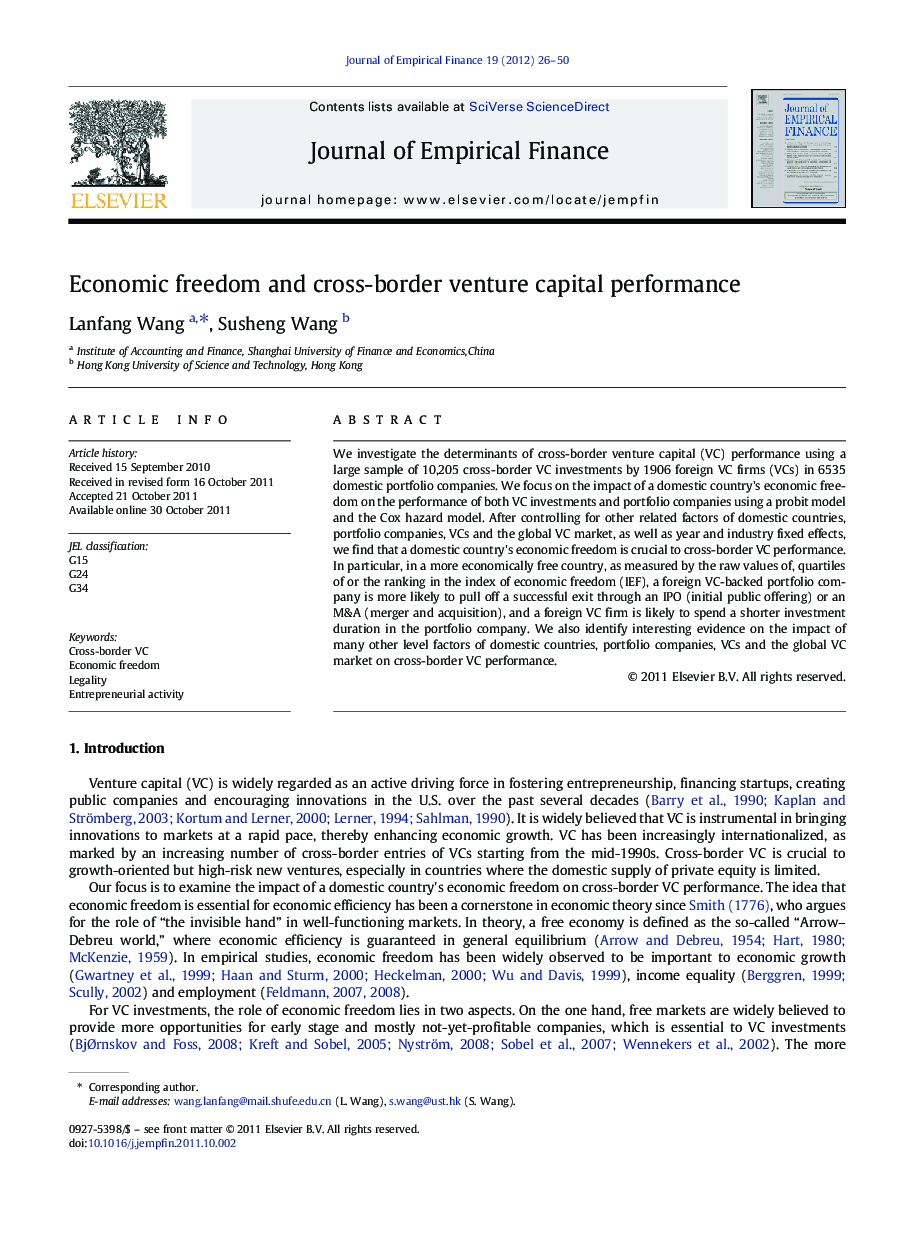| Article ID | Journal | Published Year | Pages | File Type |
|---|---|---|---|---|
| 958272 | Journal of Empirical Finance | 2012 | 25 Pages |
We investigate the determinants of cross-border venture capital (VC) performance using a large sample of 10,205 cross-border VC investments by 1906 foreign VC firms (VCs) in 6535 domestic portfolio companies. We focus on the impact of a domestic country's economic freedom on the performance of both VC investments and portfolio companies using a probit model and the Cox hazard model. After controlling for other related factors of domestic countries, portfolio companies, VCs and the global VC market, as well as year and industry fixed effects, we find that a domestic country's economic freedom is crucial to cross-border VC performance. In particular, in a more economically free country, as measured by the raw values of, quartiles of or the ranking in the index of economic freedom (IEF), a foreign VC-backed portfolio company is more likely to pull off a successful exit through an IPO (initial public offering) or an M&A (merger and acquisition), and a foreign VC firm is likely to spend a shorter investment duration in the portfolio company. We also identify interesting evidence on the impact of many other level factors of domestic countries, portfolio companies, VCs and the global VC market on cross-border VC performance.
► We investigate the determinants of cross-border venture capital (VC) performance. ► We focus on the impact of a domestic country’s economic freedom. ► We find that a domestic country’s economic freedom has positive impact on cross-border VC performance. ► We also identify interesting evidence on the impact of many other factors.
